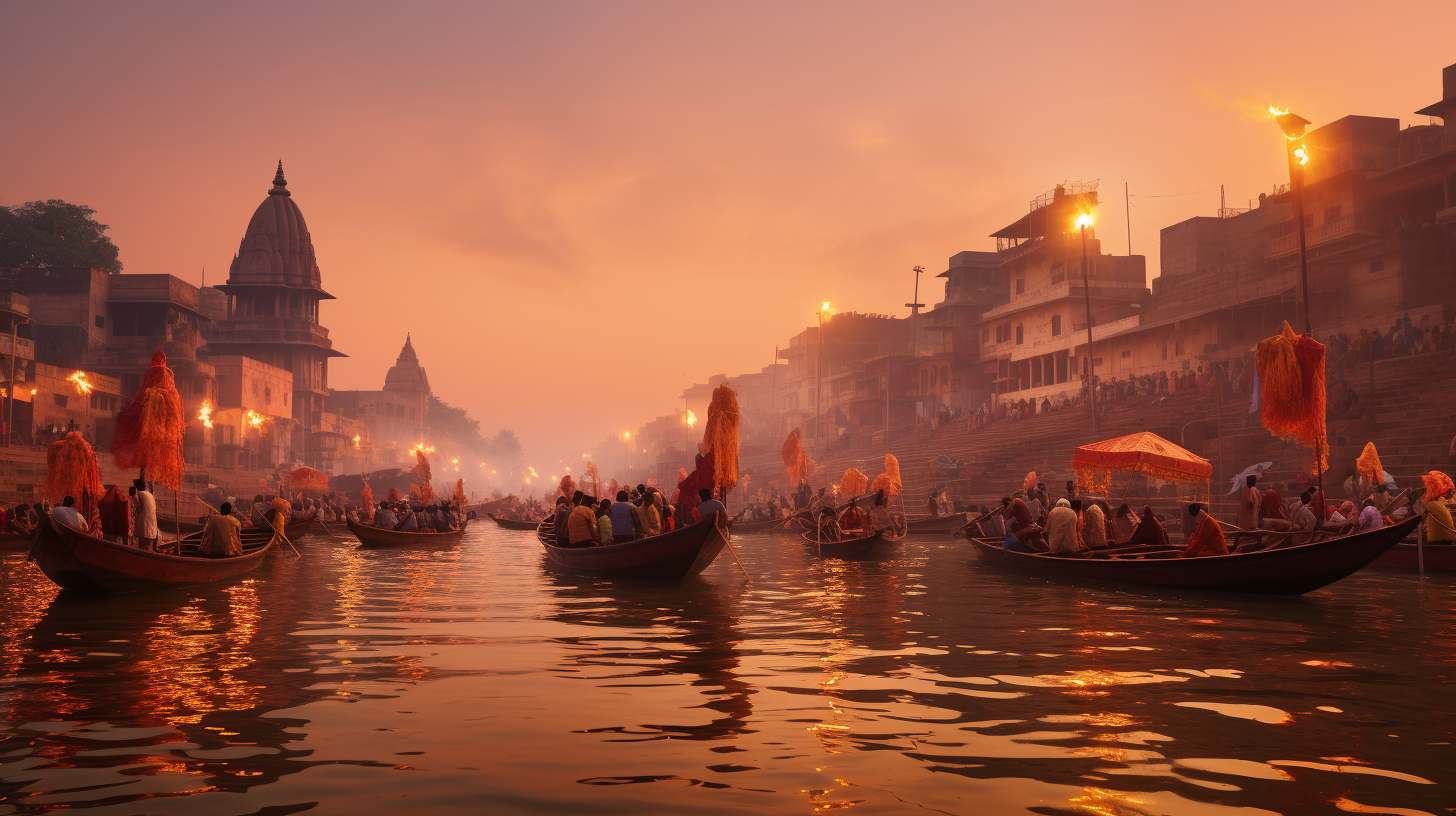India, a nation steeped in history and cultural diversity, beckons the adventurous traveler to embark on a journey of a lifetime. Heritage tourism, a niche that goes beyond typical sightseeing, allows individuals to delve into the heart of a country’s cultural identity. In this guide, we explore the vibrant tapestry of India’s heritage, providing insights into immersive experiences, architectural wonders, culinary delights, and the challenges faced in preserving these treasures.
What is Heritage Tourism?
Heritage tourism is more than a casual visit to historical sites. It involves a deep engagement with the cultural, historical, and natural aspects of a destination. It’s about connecting with the roots of a place, understanding its traditions, and experiencing the lifestyle of its people. Unlike conventional tourism, heritage tourism aims to preserve and showcase the unique identity of a region.
India’s Cultural Tapestry
India’s cultural diversity is nothing short of a marvel. From the colorful festivals of Rajasthan to the serene spirituality of Varanasi, each region contributes to the rich mosaic of Indian heritage. The historical significance embedded in the architecture, art, and traditions of India makes it a captivating destination for cultural enthusiasts.
The Allure of India’s Heritage Sites
India boasts an array of iconic heritage sites, from the majestic Taj Mahal to the ancient ruins of Hampi. However, the true beauty lies in the undiscovered gems tucked away in remote corners. Exploring these lesser-known sites provides a more intimate connection with the country’s past.
Immersive Experiences
To truly immerse yourself in India’s heritage, participate in local festivities and traditions. Whether it’s the exuberant celebrations of Diwali or the vibrant colors of Holi, these experiences offer a glimpse into the heart of Indian culture. Engaging with local customs and rituals provides a profound understanding of the community’s way of life.
Culinary Heritage
Indian cuisine is a journey in itself. Each region boasts a unique culinary identity, from the spicy curries of the South to the delectable street food of Delhi. Exploring the local food scene is an integral part of heritage tourism, allowing you to savor the flavors that have been passed down through generations.
Art and Craftsmanship
Supporting local artisans is a crucial aspect of heritage tourism. India’s traditional arts and crafts, whether it’s intricate handloom textiles or intricate pottery, reflect the country’s cultural vibrancy. Purchasing handmade souvenirs not only supports local economies but also ensures the preservation of age-old craftsmanship.
Architectural Marvels
The historical buildings and monuments of India tell tales of bygone eras. Each structure narrates a unique story, from the forts of Rajasthan to the temples of Khajuraho. Exploring these architectural marvels offers a visual journey through India’s rich past.
Spirituality and Mysticism
For a holistic heritage experience, visit the spiritual centers of India. Whether it’s the sacred Ganges in Varanasi or the temples of Madurai, these places radiate a spiritual energy that transcends time. Engaging with local rituals and practices provides a profound sense of connection with India’s spiritual heritage.
Heritage Conservation Efforts
Preserving India’s heritage requires a collective effort. Government initiatives and community involvement play a vital role in maintaining historical sites. Understanding the challenges and efforts involved in conservation adds depth to the heritage tourism experience.
Challenges in Heritage Tourism
While heritage tourism offers incredible insights, it also presents challenges. Over-tourism can lead to the degradation of historical sites. Striking a balance between tourism and preservation is essential to ensure that future generations can also appreciate India’s cultural treasures.
Travel Tips for Heritage Explorers
Planning an itinerary for a heritage tour requires careful consideration. Researching the cultural nuances of each region, practicing respectful behavior, and embracing local customs contribute to a more enriching experience. Heritage explorers should approach their journey with an open mind and a willingness to learn.
Heritage Tourism and Sustainable Travel
In an era of environmental consciousness, heritage tourism can align with sustainable travel practices. Adopting eco-friendly measures, minimizing carbon footprints, and supporting responsible tourism initiatives contribute to the preservation of heritage sites for future generations.
Impact of Heritage Tourism on Local Communities
Beyond economic benefits, heritage tourism fosters cultural exchange and understanding between travelers and local communities. This interaction creates a bridge between diverse cultures, promoting global harmony and appreciation for cultural diversity.
Conclusion
Embarking on a heritage tour in India is not just a vacation; it’s a transformative journey. As you traverse the diverse landscapes and delve into the heart of India’s rich heritage, you’ll find yourself not only as a spectator but as an active participant in a cultural odyssey. The memories forged during this experience will forever be etched in your heart, and the lessons learned will shape your perspective on the world.
FAQs
- Q: Is heritage tourism suitable for all age groups?
A: Absolutely! Heritage tourism offers experiences for everyone, from historical enthusiasts to families looking for a cultural adventure.
- Q: How can travelers contribute to heritage conservation?
A: Supporting local initiatives, respecting heritage sites, and practicing sustainable travel are effective ways to contribute.
- Q: Are heritage sites crowded with tourists?
A: Popular sites may experience crowds, but exploring lesser-known gems can provide a more intimate experience.
- Q: What is the best time to embark on a heritage tour in India?
A: The timing depends on the region. Research the climatic conditions of your chosen destination for the best experience.
- Q: Can I experience heritage tourism on a budget?
A: Yes, many heritage sites offer affordable or free entry, and budget accommodations are available to make your journey economical.


